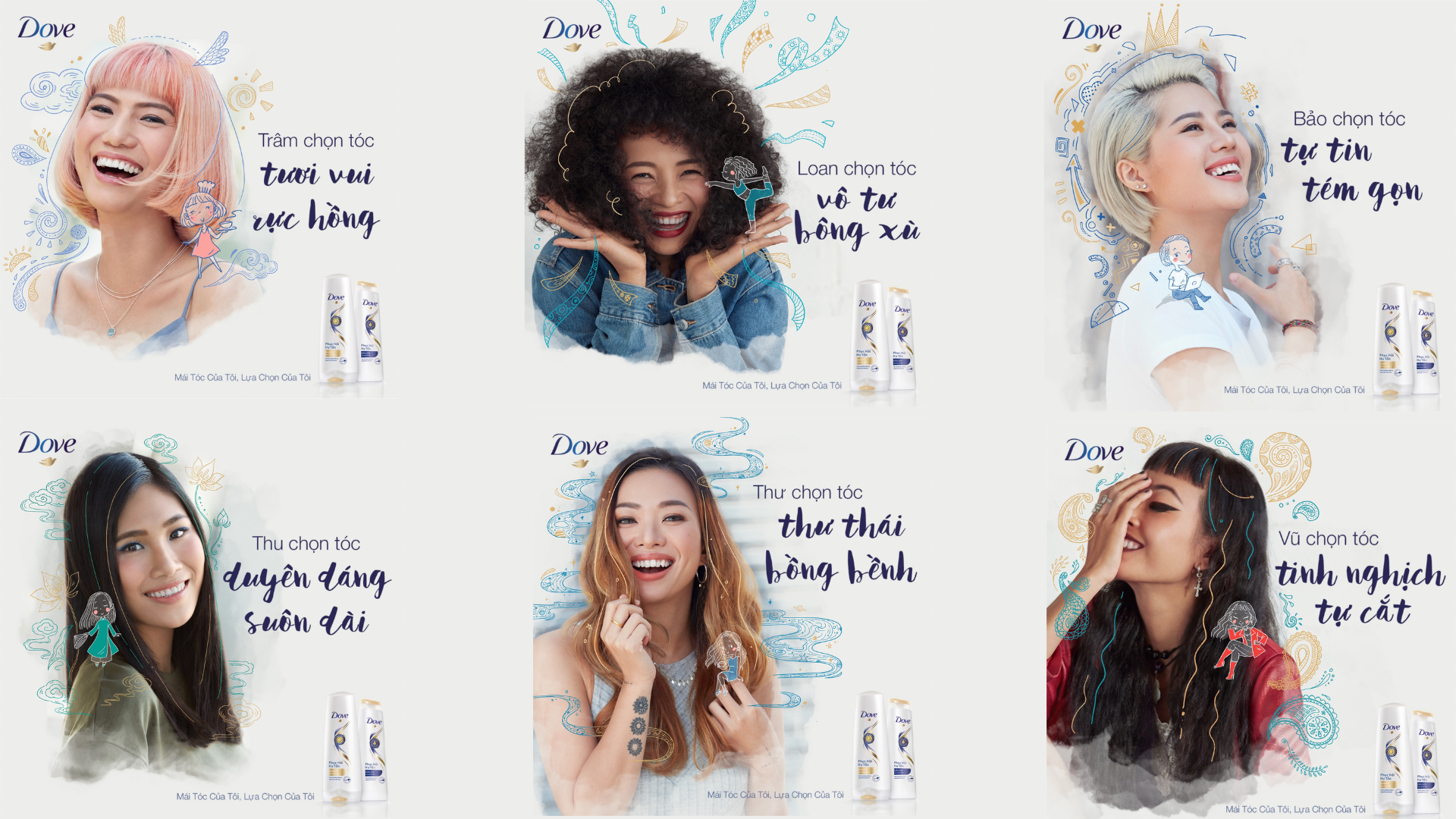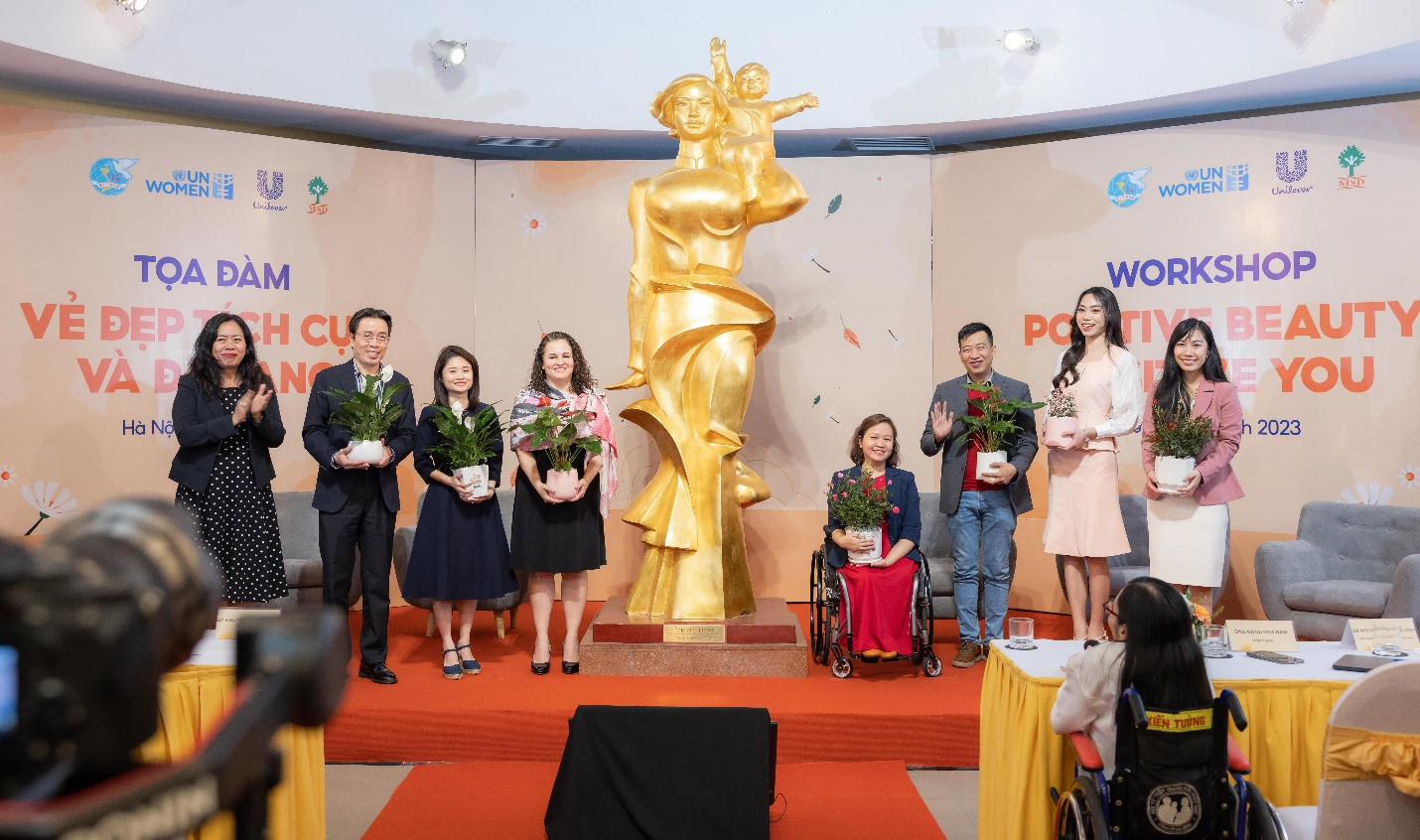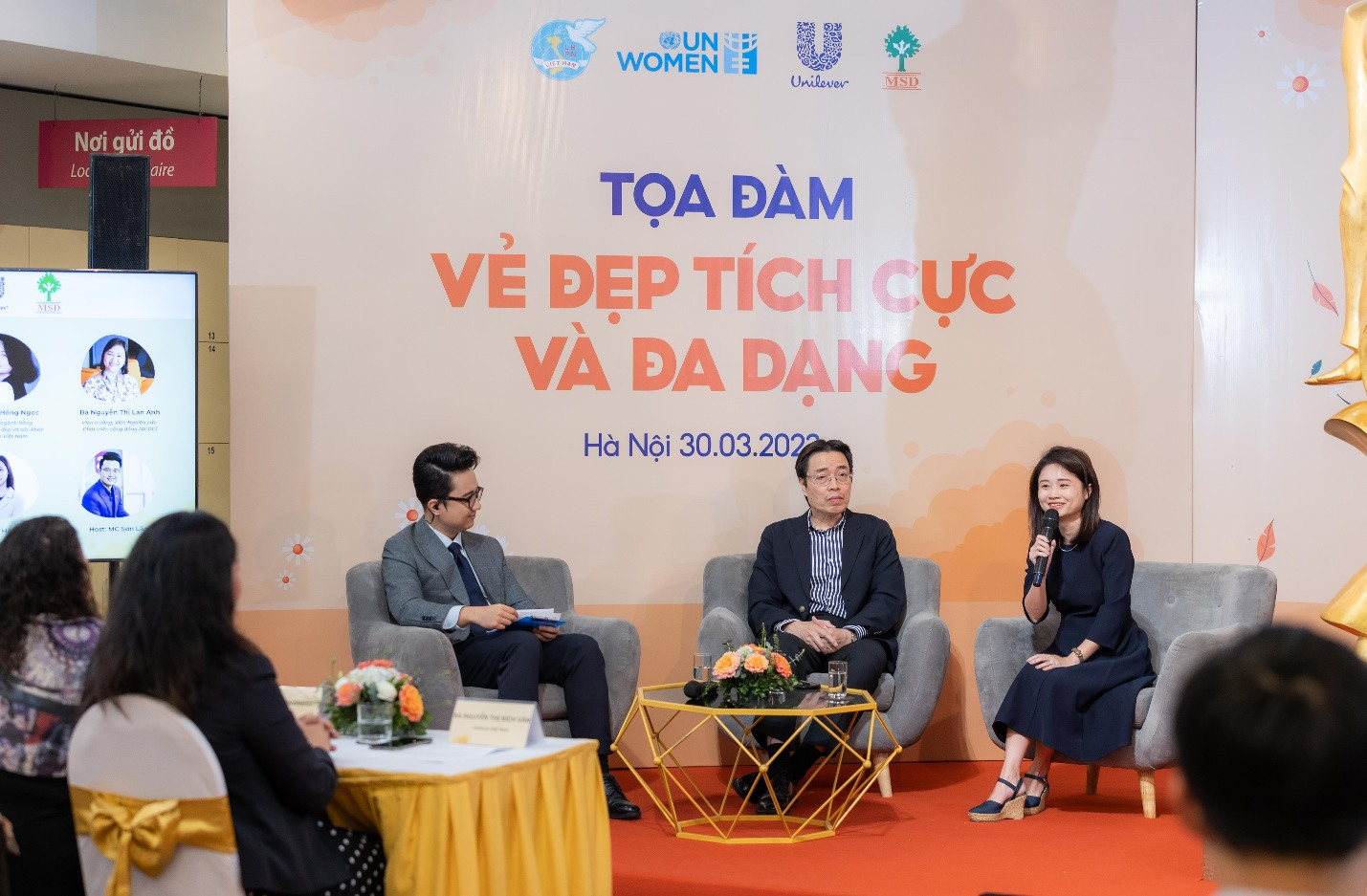Many women and girls today are still framed in stereotypes, standards of beauty. Unilever is aware of their role in being a part of removing negative norms, stereotypes, opening a broader and more comprehensive definition of beauty through technology and innovation, and purposeful programs from their brands to consumers.
From the empathy…
The 10,000-person study, which was commissioned by Unilever, was conducted across nine countries. It found that 74% of people want to see the beauty and personal care industry focusing more on making people feel better, than just looking better. Besides, more than half of people say they now pay more attention to a company’s stance on societal issues before buying products.
The above-mentioned figures show the important role of businesses in changing social prejudices, eliminating negative norms and stereotypes about female beauty, thereby contributing to building a more diverse, equal and inclusive society.
With one billion people using Unilever’s beauty and personal care products every day globally, and even more seeing their advertising, Unilever’s brands desire to leverage their strengths in technology and innovation, and their influence to champion a new era of beauty which is equitable and inclusive, as well as sustainable for the planet.

… to firm commitment and action
To realize this, Unilever has launched the program “Positive Beauty” with commitment and action from their beauty and personal care brands.
Firstly, using Unilever’s world class innovation and technology, “Positive Beauty” helps to drive a transformation in how their products are designed and formulated so that they do more good for both people and the planet, deliver a superior product experience, and tap into consumer trends.
Next, the program drives gender equity through stepping up brand programs, advocacy to challenge the status quo and “unstereotyping” advertising.
In addition, “Positive Beauty” contributes to improving people’s health and wellbeing through existing educational initiatives in personal care and expanding focus into new areas, including physical health and mental wellbeing.
Specifically, Unilever Vietnam has just collaborated with the Vietnam Women’s Union, UN Women and the Management and Sustainable Development Institute (MSD) to organize the seminar “Positive and Diverse Beauty” with a diversity of perspectives from different panelists.

Mr. Dang Hoa Nam, Director of the Department of Children, Ministry of Labor, Invalids and Social Affairs, a member of the Executive Board of Mennet, said: “Many people have always believed that women need to find a man’s shoulder to lean on. But in fact, women and younger girls are strong and trustworthy people that men could rely on when we are facing difficult situations. So to become a shoulder for others to lean on, we must be confident in ourselves.”
Regarding challenges that disabled women have to face and how to overcome, Ms. Nguyen Thi Lan Anh from the ACDC, said: “In the past, like other disabled women, I always lived in anxiety due to the prejudice that our appearance does not conform to social standards. However, 21 years ago, when I was assigned to be the host for a big event, putting on the traditional Vietnamese Ao Dai for the first time and standing in front of thousands of people, I suddenly realized that I did not need to hide my defects, and just be myself instead. The work that I do, the way that I behave, think, and contribute to society is what defines my inner beauty.”
Hoang Anh Tu - author of the book "Living a Brilliant Life" - delivered a profound statement about the potential of women: “We keep saying that women have to be more confident and empowered. All of that is the right thing to do, but will make no sense if women lack confidence in themselves, in what they are doing. I really hope women - whoever you are, whatever your age, what job you do, how you look or everything else, to know that you are beautiful. Women with positive thinking, positive lifestyle, and positive energy are the most beautiful.”
Ms. Bui Le Hong Ngoc, representing Unilever Vietnam, said: “Confidence is not limited by age, or any stage of life. We can be confident anytime. The first barrier affecting self-confidence of women and girls usually comes from beauty concepts and stereotypes in society. The second barrier derives from the individuals who allow others to determine their own beauty. So, I hope women and young girls can define and possess our own positive beauty by doing things that make us happy, make us feel good about ourselves, and become our better versions.”

The panel discussion then comes to the end, but continues to open up Unilever’s journey of “Positive Beauty” that inspires women and girls to recognize their values and strengths to be better and more confident every day.
PV